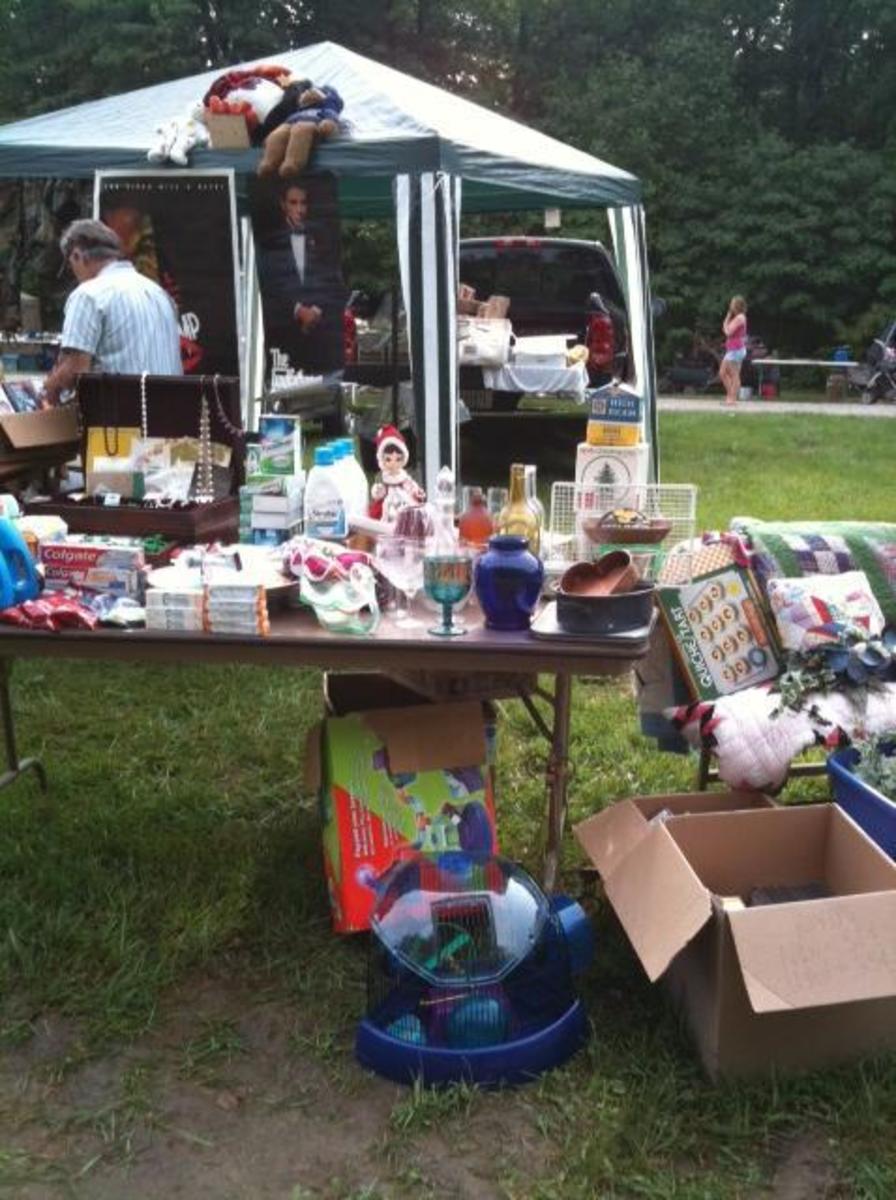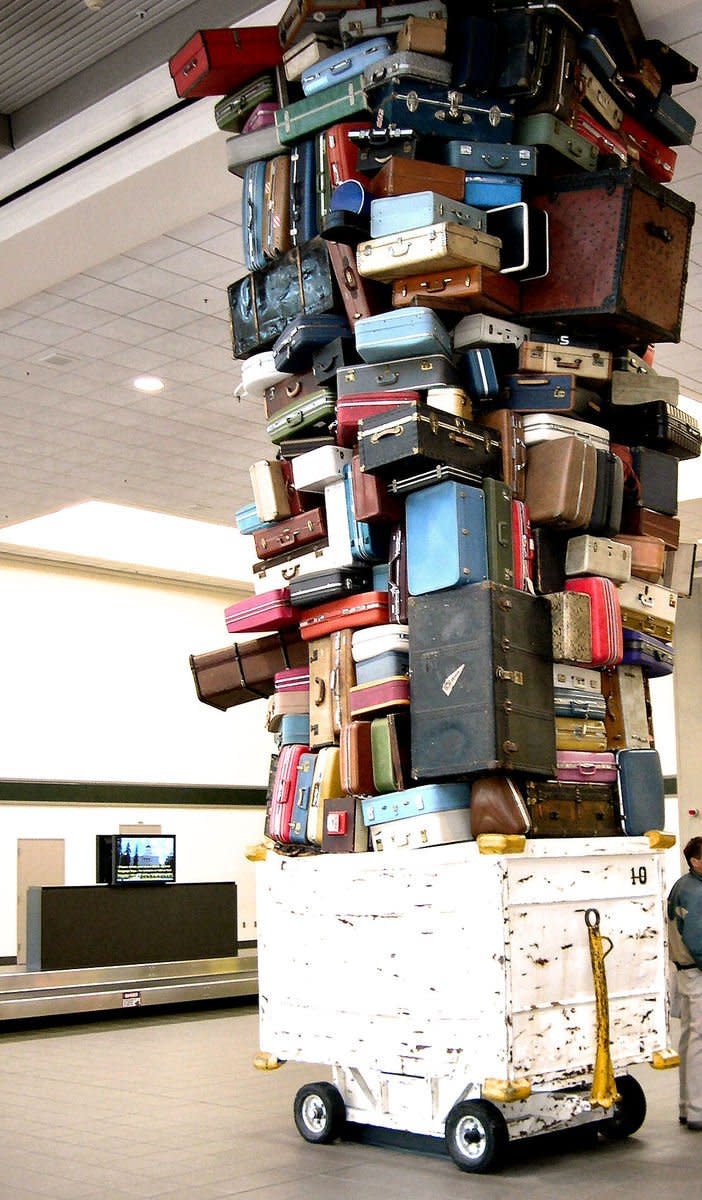Seven Tips For Bartering Fearlessly While Traveling
A Market Vendor in Thailand Getting Ready For The New Year
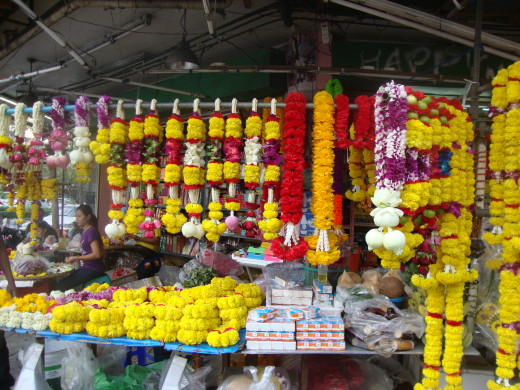
Embrace The Smells And Colors Of The Market
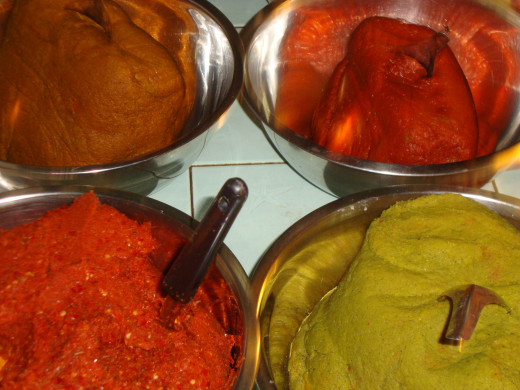
Bring Some Of The Spice Home With You
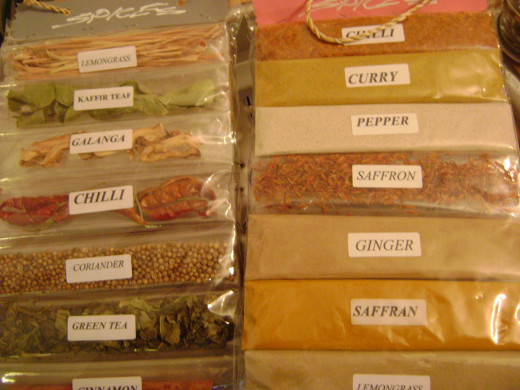
Create Memories & Share The Gifts
Marketplaces are always high on my list when traveling, they are a great place to experience the local culture, find extraordinary and beautiful items and make memories. Some of my fondest memories while traveling are of the times that I had the opportunity to meet and interact with the locals. I am naturally curious and want to know everything, asking how to use items, what to do with a cooking tool or even asking for recipes.
I especially love purchasing clothing and jewelry to give as gifts or to wear back home when I share the stories of my trip. My absolute favorite thing to purchase in the marketplaces I visit are unusual cooking utensils and serving platters or bowls. Once I have found the perfect serving dish or bowl or cooking device, I will search for the spices that will ensure an authentic meal when I arrive back home.
When I return from a trip I like to invite my friends and family over so I can share stories from my travels. I will cook great food using the spices or recipes I have just acquired and will have gifts for all. It is a great win-win, I get to re-live the experiences and they get to experience a little bit of the flavor of the trip…literally.
My favorite trip sharing party occurred after a seven country visit in Europe with my then teen-aged daughter – we served food from all seven of the countries after collecting spices, food and platters in each of the countries we visited; planning ahead to serve a multi-country meal. It was great fun while we were on the trip and especially fun to watch as the party played out – everyone had a blast.
So Many Great Gifts
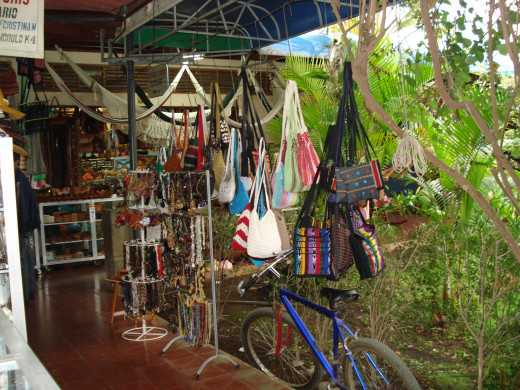
Tip #1: Start With A Plan
Before you leave on your trip, make a list of everyone you are planning on purchasing a gift for and include a few wild cards. You don’t have to know what gift you are going to get, but if you have a few ideas write them down too. Be sure to include yourself and write down some things that you know you want to find when you do get to your destination.
Like any shopping experience, having a list will help to keep you focused and it will feel great to check people off your list as you find the perfect items for them. The most important part about planning and keeping track of the items you are purchasing is to keep track of the size or weight of your purchases to stay under your baggage allowance or weight. So think small and light when you put together your list. Some examples of gifts I like to get while traveling include jewelry, table cloths, spices, scarves and cooking utensils.
Gift List
Name
| Gift Idea
| Budget
| Purchased
| Comment or Story About The Gift
|
|---|---|---|---|---|
Check off each gift as you purchase it, fill in the ideas as you think of them and determine a budget. Add several wild cards so that you have a few extra gifts for anyone you may have forgotten, or for unexpected guests at your trip party. Be sure t
Get To Know The Artist
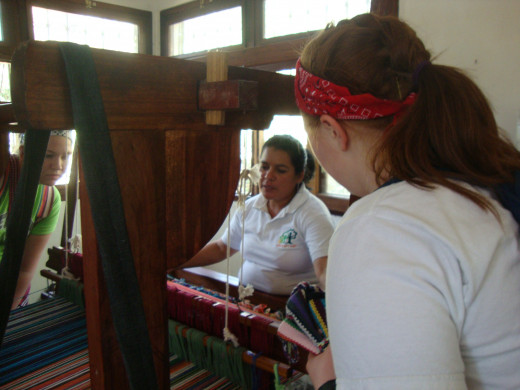
Tip # 2: What Is It Worth?
There is a saying that something is only worth as much as someone else is willing to pay for it and nothing is more true than when traveling and are faced with having to barter for everything from parking to food, clothing and gifts.
Before you begin the discussion with the vendor for the items you are interested in purchasing ask yourself what is it worth to you? How much are you willing to spend to acquire a specific item? Determine a target price – the price that will make you feel good about traveling halfway around the world to purchase that item, and set a maximum price in your mind which will help you know when to walk away in the negotiation. Stick to your plan, otherwise you may get carried away with the negotiating and find that you have exceeded your maximum price.
Sewn Goods
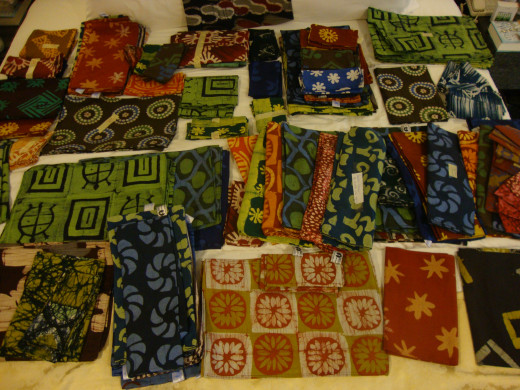
Think In Local Currency
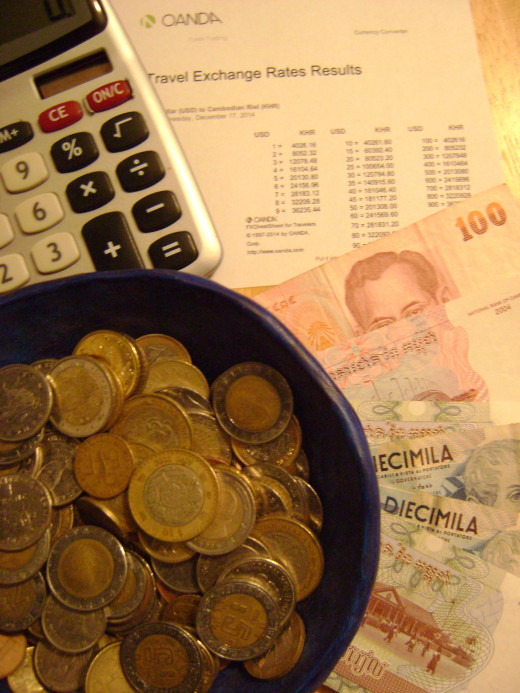
Tip #3: Negotiate and Pay in Local Currency
Once you have determined your range of what you are willing to pay – target price to maximum price – convert that range into local currency. It is always a good idea to be thinking and dealing with local currency but there is another reason to barter and pay in local currency, you will usually get a better deal.
For a great pocket sized currency converter visit www.Oanda.com and download both their currency converter and reverse converter. They will print in credit card sized lists and are easy to carry with you. Get familiar with the local currency and it will be easier to be thinking locally.
Cooking Utensils And Dishes Make Great Gifts
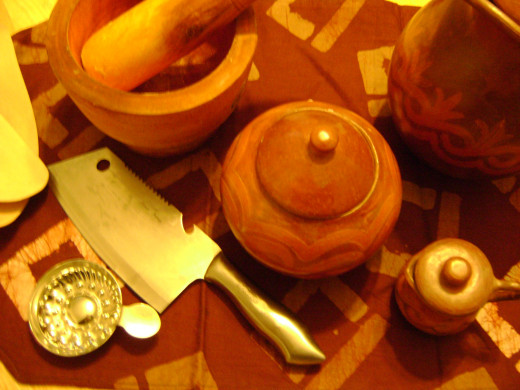
What's On Your Bucket List?
Which Continent Do You Want To Visit?
Tip 4: Get Ready To Make The Deal
Prior to making the deal, conduct some reconnaissance work, or market research. Walk by shops and inquire about some of the items on your list when you are not planning on making a purchase. I try to time my market research when I am on my way to an event or activity so that I do not get roped into making a purchase before I am ready. Market research helps you establish target and maximum prices when you are ready to seal the deal. If while conducting your research you find a vendor or a product that you really like, and you know you can stop by again, let them know you will return – I can assure you that they will remember you and appreciate that you came back.
If you are in transit and find something during your research that you absolutely must have right then and there and don’t care how much it costs – by all means buy it. Market research just helps you make those planned purchases and is not meant to hinder a great buy when you come across one.
You have identified something you want, an item that is on your list for that special person, you know your range, the target and max prices and have got those amounts converted into local currency – now you are ready to get down to business. Begin by greeting the vendor and pointing to the item you are interested in bartering for. I like to ask the question “How much” in the local language on a cheat sheet of common phrases.
Once you have picked up an item and have it in your hands, you have claimed an attachment to the item that is difficult to break – I never pick up an item I am getting ready to negotiate for, unless I pick it up to put on a counter or shelf. Do not negotiate with the item in your hands – be detached from it. Often vendors will try to put the item back in your hands, politely resist.
Most foreign language dictionaries have a few pages in the back of the book with these common phrases, or you can put together your own and modify it as you go along on your trip. When I was in Thailand recently, I asked the front desk to help me with a few phrases and then wrote their responses on an index card phonetically. A few phrases can go a long way in building rapport and your negotiation with a vendor is all about rapport.
Once the vendor gives you their opening price the game is on. I always ask for their price first, then I counter with half their opening bid, which should be under your target price – if it is not, then either your max price is too low or the vendor has started too high. If they ask you to start, begin by offering half of what you ideally want to pay (your target price), they will counter and eventually the two of you will end up in the middle – at your target price and under your maximum price.
You Can Get Everything At The Marketplace
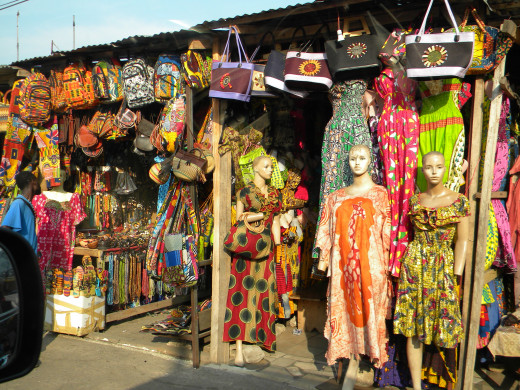
Tip #5: Be Respectful, But Not Shy
Bartering is a way of life in many countries and just because you have not had practice at it, there is no need to shy away from negotiating, nor be shy. It is okay to be assertive and respectful and as you gain confidence in your skill to determine and arrive at your target price, you will have the mastery needed to approach negotiating. Like bicycle riding, negotiating with marketplace vendors is a skill that comes easily once you have practiced, those first few attempts may be a little shaky, but soon you will be helping other tourists and visitors negotiate.
It is extremely important to look at bartering as an opportunity to engage with the locals and with that in mind, you must remain respectful at all times. There is no need to yell or be rude to a vendor, you don’t need to be taken advantage of either. Recently, I was in Ghana at a marketplace that was filled with predator vendors just waiting to jump on any tourist who came into their lair. I refuse to do business with anyone who treats me like that – there is nothing that they are selling that I am willing to be insulted or victimized for. And in fact, when we do business with people like that, it encourages them to continue using those tactics. So walk away.
I was accosted by a vendor in Ghana while walking on the streets and stopped, looked him in the eye and said “No means no” firm and friendly and walked away. In Mexico I have had similar experiences and simply say, “No gracias, esta bien.” There is no need to engage in aggressive behavior – this is about engaging respectfully with the locals. No trinket is worth sacrificing your personal respect and safety. Conversely, those vendors who are willing to respectfully engage, are those with whom I want to do business and will often revisit a vendor who has treated me especially well.
Bartering in Bulk
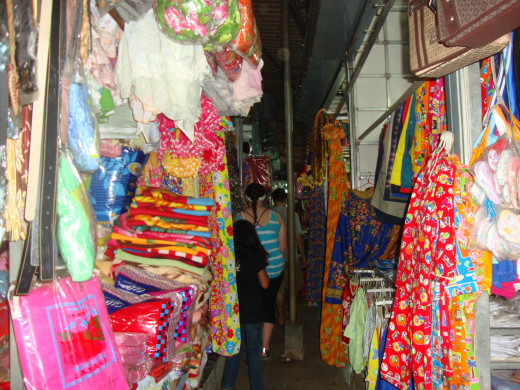
Tip # 6: Add Something To The Mix
If you and the vendor are obviously not getting to your target price and are still over your max price, add something to the deal, find something small that they can throw in that will increase the value for you and they can offer a better price for. Or buy in bulk – for example – when in Cambodia, I really wanted to buy a number of silk scarves as gifts, I had been asking around and had determined that I could purchase one for about 20,000 Cambodian Riel or $5 USD – so that became my max price, with a target of 10,000 Riel. I learned this by conducting market research earlier in the trip.
Although I knew I needed 10 scarves, I began the negotiation with one, asking the vendor how much for one? As we worked through the bargaining process, we got close to 17,500 Riel, under my max but not yet near my target. I picked up 2 more scarves and asked him how much for the 3 and he immediately engaged, 45,000 Riel for the 3…and we are getting closer, but I asked if we could get to 42,000 Riel for the 3 and he hesitated and then picked up 2 more scarves and offered 5 scarves for 60,000 Riel and we are getting close. So I decided to go for the gold and countered 10 scarves for 90,000 Riel he offered 10 scarves for 100,000 – my target price – and we had a deal. To convert to USD, I was able to secure 10 beautiful silk scarves for gifts for $2.50 each and he was happy too. Each day I walked by his stand he had something new to show me and we developed a great partnership. By the end of my stay, we had exchanged pictures of our families and I had the inside scoop on where to buy a cooking pan that I had been looking for.
If you are traveling with family or friends, you can all bulk buy together and save a lot of time and money by adding to your purchase. And, once you have agreed to a price – keep your word. If you are planning on adding to the sale, don’t agree to an amount and then add an item – be respectful.
Micro-Shopping
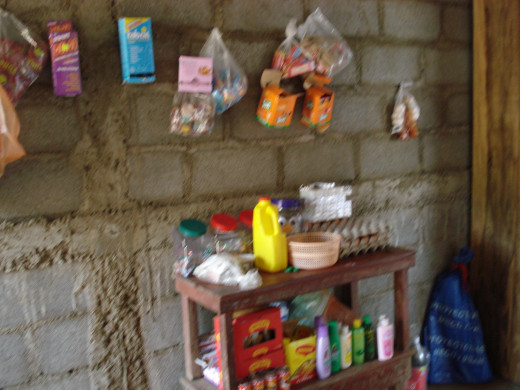
Tip # 7: Learn Your Numbers Or Carry a Small Calculator
For some reason I struggle with hearing and understanding numbers in other languages, and so I carry a small pocket sized calculator in my magical backpack wherever I travel. Numbers usually work the same everywhere and often vendors in market places will have their own calculators in which they will put the amount of the negotiation or the price into so that you are both on the same page. It is a simple way to communicate and when adding another item or a bulk purchase, the math can be done quickly.
If you only have USD, you can also use your small pocket calculator for currency conversions too. I have often been asked why I don’t bring a pocket translation devise or use my phone instead of the printed Oanda converter, or calculator – there are actually many reasons but the first two are that I don’t like being conspicuous which happens when you bring out any kind of technology – the price will go up too. But the main reason is that many of the places I travel don’t have reliable internet, nor electricity and I just don’t want to have to hassle with dealing with keeping my technology connected. You could certainly use whatever works for you, just keep in mind that part of the process of the struggle of communicating allows for interaction and can build relationships. It is okay to be a student, learning and curious – that opens so many doors when traveling.
If you really can’t handle it, bring a friend to support you, or shop in stores where the prices are fixed with prices clearly marked. I do like to shop in grocery stores when they are available, or if purchasing cloth for clothing, those vendors typically have fixed marked prices. There are certainly many shops where bartering is not the norm, and those vendors are always happy to have you shop there too. There are certainly tradeoffs and it is important to find strategies that work for you. My hope for you is that if you have shied away from purchasing anything in a market place where bartering is the norm – use these tips and engage with the local customs with local vendors – it will add to your experience and will provide a backstory that the recipients of the gift will enjoy learning about when you get back home.
What experiences have you had while bartering? What strategies have you found to be successful? I would love to hear about your own experiences.
Woodin My Favorite Place to Find Fabric in Ghana
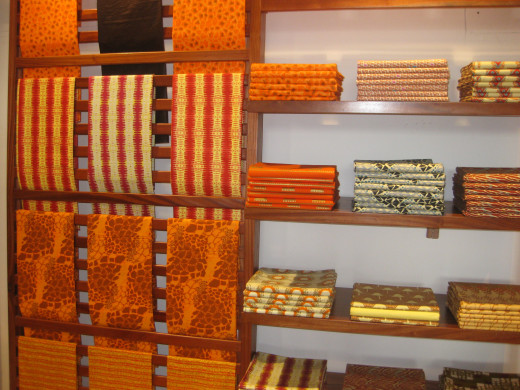
Host A Trip Party
Once you have mastered the art of bartering, you will have so much fun purchasing things in the marketplaces that you will want to have a trip party to share all of your stories and hand out the great gifts you fearlessly bartered to obtain.
When I host a trip party, there is food, drinks, pictures and stories, but there are also gifts. I love finding something for everyone and then telling them the story behind the gift. Sometimes that means telling the recipient how the gift would normally be used in the country I brought it home from, but almost inevitably, the story turns to how I acquired the item.
I learned early in my travels that the story behind the gifts are often far more interesting than the gift itself. Engaging in the marketplace increases the value of each gift by creating a backstory. So the next time you are faced with an opportunity to immerse yourself in the marketplace while traveling and barter – go for it and use these tips to barter fearlessly.
What experiences have you had while bartering? What strategies have you found to be successful? I would love to hear about your own experiences.



